#legend of korra meta
Text
I JUST FINISHED LEGEND OF KORRA AND I HAVE THOUGHTS PART2: THE KREW
Yeahhh, I'm going there. The Krew aren't friends, I don't buy it. Korra and Bolin genuinely seemed like friends in season 1 before it fell off and they barely had any interactions outside of action sequences. Honestly Bolin's character was really good, like genuinely a good guy I'd want to ve friends with.
However they're still friends. So are Mako and Korra, even though it was rough after they finally broke up. Korra and Assami genuinely became friends and while I have MUCH to say about Assami, at least i believe she and Korra are friends.
And there lies the issue. Korra is friends with all three of them. But I can't buy that the rest are friends with each other.
Of course, Bolin and Mako are brothers. Their relationship makes sense. But Bolin and Assami? They feel like two people that just hang out because they have people in common. I can't imagine the two of them having long interactions on their own.
Assami and Mako were...fine while they dated. After that? Do you genuinely think those two even share a cup of tea together? How many times do you think just the two of them met up during those three years?
Korra and Mako, unlikely as it is, work. Specially after they stopped dating.
This is all just my opinion, but the Krew works as team avatar but not as a group of friends. They're like a friend group where most of the people aren't all that close to each other, even though they hang out and have fun. ...a far cry from the Gaang.
I don't want to put them against each other, but as a continuation of ATLA comparisons are bound to pop up. The Krew feels like a far cry from the found family that was Gaang. I mean even the characters with the LEAST interactions, Toph and Zuko had conversations I can't imagine a lot of the Krew even come close to having.
I can clearly define the relationships between Sokka and Toph, Aang and Zuko, Zuko and Katara, and do forth. I can't when it comes to the Krew and that's a shame.
#the legend of korra critical#alok critical#meta#legend of korra meta#korra critical#mmm crunchy#tlok#legend of korra#korra#the krew
12 notes
·
View notes
Text
LOK really was so sporadic about when they remembered they were a kids show and probably shouldn’t show people being casually murdered. Like in most (though definitely not all) of the fight scenes in avatar, they made a point to show the people who lost were still alive. Like when one of those tank things got crushed, they’d show the drivers crawling out groaning or whatever. But in LOK it was so half assed and so sporadic when they bothered to show the losers in a fight scene after being struck down or aside. Like, honestly at least half of the time we’re just supposed to infer they died. Which, yeah fine, that’s far more likely than them surviving and being fine and dandy after being thrown through a wall or off a plane or some shit. But it’s still just wild that the writing/animation or whatever was so all over the place. LOK really could not find it’s tone and stick to it. Like truly. One minute you have Meelo airbend-farting and the next you have Tarlok committing murder suicide. Talk about not being able to find its audience and tone/rhythm.
But yeah, I’m rambling. Point is, it’s wild how many time LOK just randomly murdered characters and made zero effort to act like a show on a kids channel (yes I understand most viewers were former atla fans, and so were most likely teenagers or adults, but the Nickelodeon is undoubtedly a kids channel). To the point that when they did remember to show a random character being alive post getting their ass kicked, it was genuinely surprising. Anyways this has been a ramble but all that being said, it’s honestly not surprising that the network pulled it from air and just had it air online (not saying I agree with the decision, just that I’m not surprised by it).
32 notes
·
View notes
Text
Someone I know, who was in a position of significant institutional authority, quoted Audrey Lorde, "we were never meant to survive", and said of herself and the other people running said institution, "we were certainly never meant to be put in charge of anything."
I think Legend of Korra needs to be understood through that lens.
It messes up an individual's life when they have a period of time when they know they're likely to not be alive at the same time next year. Especially when it's years and years like that. It interferes with long term planning, with figuring out who you are and what matters to you, with figuring out what you want or even that you are allowed to want things.
And when someone has had that experience and is put in a position of authority, it ...makes things harder.
You know Ozai wasn't seriously preparing Zuko to succede him. And to the extent that some training filtered through anyways, you know Zuko doesn't want to rule the same way Ozai did, so what's his model to follow? Iroh's? I'm sure Iroh was both highly competent and thoroughly trained, but he didn't seriously expect Zuko to ever return from exile, let alone rule. Plus, he was going through his own shit, during the three or four years he was close to Zuko.
Zuko was never meant to survive, and he certainly was not meant to end up in charge of anything.
And same for Katara and Sokka and Toph, with some caveats -- Katara and Sokka's family and tribe very much wanted them to live, but didn't have the resources and ability to raise them the way they wanted to, because they were fighting a war that they were losing very, very badly. Toph was meant to survive -- as the helpless, quiet, well-behaved girl her parents thought she was. Not as she actually was.
So these people grow up and get into positions of power and raise families, and the whole intergenerational trauma thing kicks in because they hadn't been preparing to be in power and they didn't have teachers and mentors for the most part and because also they were at least in some cases trying to do things in a way that they didn't have a roadmap for.
As far as we know, Aang and Katara knew literally no one older than them in an intercultural relationship. They had to figure it out themselves, with Aang having none of his people to go to for advice outside of his own past lives and Katara having a father who was gone for most of her childhood and no mother.
And this is talked about in ATLA! That whole thing in Season 3 when Katata is so mad at her father even though she knows it's not really his fault and he was just doing the best he could under the circumstances, the circumstances being a defensive war that they were losing. (And ATLA does not go into what that might have been like for Hakoda, looking into his daughter's eyes and seeing his lost wife.) The theme of "sometimes kids get fucked up related to things a parent did even when the parent was doing their best under very adversarial conditions" is right there in ATLA.
So yeah, the world the Gaang leads and the families they raise have some problems. That's what happens when you have fallible people doing things under imperfect conditions. It's not inconsistent writing ffs.
If you can't have compassion for both the ATLA generation and their kids, while accepting LOK canon, that's a skill issue.
3 notes
·
View notes
Note
The post, as promised:
One of the things that's important to note whenever we talk about LoK is that it is very much a superhero story, in contrast to ATLA which is fantasy magical chosen one adventure. The two are very different genres. The main difference between the two genres is that ATLA tends to function on fantasy rules, while LoK functions on more realistic rules. ATLA and Lok may be set in the same universe, but the laws and worldbuilding and rules, etc, are very different.
LoK functions on the rules of a superhero story, which is basically the real world but with superpowers. Things (which are actually encouraged in fantasy chosen one adventure shows like ATLA) like mass destruction and questionable decisions and talking like a fictional character and assuming things will be fine because chosen one, etc, are not okay in LoK.
The conflict in LoK also tends to be similar to the conflict in superhero stories. The main difference between LoK and other superhero stories is that LoK actually focuses on how the general non-superpowered populace feels rather than only the feelings of the main character and other superpowered individuals like them.
With that explained, I'd like to mention something: Korra embodies a lot of the traits that are acceptable and even encouraged in fictional superheroes and chosen ones yet would be STRONGLY discouraged in real life. This is what she was raised to be, a fantasy chosen one. Henceforth, she embodies all the traits that fantasy chosen ones are supposed to have at the end of their arc: She's confident in her identity as the chosen one, she doesn't run away from conflict no matter how hard it will be for her, she's confident, outgoing, ready to defeat bad guys, a capable fighter, compassionate, caring, etc.
If Korra was in ATLA, she'd be so beloved, because she's what is needed. But in LoK, those traits that she was raised to have actually are a deterrent and a flaw.
And back to how Korra was raised. She was raised to be a literal character, like in a book. A chosen one, not an actual person. And honestly, the way characters are viewed...is kind of sadistic. They're not real, so we don't have moral problems (99% of the time) watching them suffer and be hurt and grow because of those negative experiences. They're tools, they're symbols, they're entertainment. Korra is kind of like Katniss, but she was raised to be a sacrifice instead of being a potential participant. She's entertainment. A symbol. A tool.
And most people see Korra in this way, which strongly contributes to their negative feelings about her. She's a symbol of their pain, at least to them, rather than an actual person like them. It's also why the villains have no problems just completely wrecking her with no compassion. She's not viewed as human who can feel pain and hurt, but a fantasy being.
So Korra acts like one. She acts like a chosen one fantasy hero, living in a chosen one fantasy world. She sees herself as a character, too. Just her bending. Just her abilities. Just the Avatar. Because that's all people see when they look at her for the most part. So that's all she sees.
But Korra is more than just a chosen one. She wants to do stuff other than what she's told to do. She wants respect. She demands respect! She wants to have hobbies. She has a personality that makes her naturally resistant to the white lotus's attempts to shape her into the perfect chosen one. She wants to leave her very miserable life. She wants to stop being the Avatar. She wants to be like everyone else.
And the two conflict, Korra's non chosen one traits and her fantasy traits. Which is good for the populace, because she actually tries to help them and consistently sides with them. But it's not good for the white lotus or Tenzin or her parents (who, while being well meaning, need to see Korra happy to assuage their fears that what they're doing is WRONG), who very much depend on that flawed system and want to only see a happy chosen one who does what they want without question.
So they push her back into that role. Tenzin tries to make her the perfect airbender without actually considering Korra's feelings or personality. The White Lotus don't let her see what life outside of her bubble looks like so she doesn't get any ideas. And when Korra actually confronts her parents, they refuse to actually explain to her about the red lotus or why they think Unalaq being her mentor is a bad idea.
Everyone tells her to do what they want without considering that Korra actually has feelings and understands what they are doing and how it is wrong or that Korra may actually comply if they treat her with a degree of respect and treat her like an actual human being, and perceive her, you know, actually acting like a human and feeling what a human being feels being rather than a one dimensional fantasy character as rebellion.
After all, if they actually considered that Korra was a human being with actual feelings and thoughts and opinons that are worthy of respect, if they actually let her not be a tool for their agendas, then the whole thing falls apart.
So essentially, everyone views Korra much more as a symbol, architype, or tool than they do a person? And Korra was raised as if she was a symbol, as if she was a fantasy hero like Aang was idealized to be, and thus struggled when she faced the real world? Interesting ideas.
#Korra#LoK#legend of korra#legend of korra meta#legend of korra critical#TLOK#LoK critical#tlok critical
44 notes
·
View notes
Text
My thoughts on the new Avatar show announcement
disclaimer; these are my personal opinions and not objective fact. Take this as more of a vent than anything else. Also, this will be VERY long and rambley, and will contain spoilers for just about every existing Avatar-verse IP.
ok so I'm generally of an optimistic mindset when it comes to new Avatar content, because like. Even the GLY comics had SOME good moments (they at least TRIED to answer questions people had after ATLA and Korra were both over)
But I'm having a HARD time being optimistic about this new Earth Avatar show. I have no idea how they're gonna pull off telling a good story that's also a NEW story when LOK had nothing resembling the seeds for a new plot?
ATLA left enough (interesting) loose ends that HAD to be tied up in a future setting (finding Zuko's mom, the fate of the Air Nomads with Aang being the last one, etc.) as well as a few interesting questions that could be explored in either past or future settings (how the avatar came to be, whether the water tribe was rebuilt and how successfully, political unrest with a new fire lord on the throne and the war suddenly ending, past avatars' lives and stories, as well as general questions about the fate of certain characters). LOK and the comics and the FC Yee novels have (with varying degrees of success) answered a lot of those.
The problem is, I have a hard time thinking of any such interesting threads in LOK that don't just point back to the past again. Whatever questions I have about the future are strictly related to the characters, because there wasn't a whole lot going on in the *world* of Legend of Korra that would have long-term effects. At least not beyond the connection to past Avatars being cut off, which is a story that for me just isn't interesting enough to center a whole series around the implications of, unless it's set during the era of Wan's immediate successor trying to learn the ropes from the ground up; or the effects of Wu abolishing the monarchy, which...creates a political drama and not much else, as far as I can see, and that's literally the last thing I want to watch a cartoon about.
As i said, the questions LOK DID leave me with were related to the characters rather than the world itself, which...is kind of a bad thing if you're setting the sequel in a time when most or all of those characters are going to be dead. I mean, we saw how that went in LOK; nobody liked Toph being a cop, or Katara being a lonely old lady (and yeah, she wanted a peaceful life, but there's nothing about her in LOK that says 'peaceful' to me. She's lonely and sad.) or Sokka being barely mentioned, or Aang being a neglectful dad (and yeah, there's nuance to that one but it isn't done very well in my opinion). Zuko gets to be in a couple episodes and have a dragon and a daughter we know nothing about from a wife we know even less about.
Setting the story as far in the future as they would need to to avoid killing Korra off at the ripe old age of like 30 (and wow, wouldn't that be such a good take, having both existing named water tribe avatars die tragically young?) would in the process do two things:
Remove nearly all ties to the original show and any relevant stories that could be told in relation through characters and plotlines that showed up there (and all ties that I would personally find interesting)
progress the world of Avatar further into an already over-westernized version of the world, presumably technologically advancing it and keeping in line with the 'real-world progression' set up by setting LOK in a 1920s-esque era.
I don't know about you but nothing excites me LESS than seeing characters I have no emotional connection to and no information on navigate a modernized, westernized version of the avatar world. LOK tried that, some people liked it, but it didn't really do it for me. If it had been a miniseries like Bryke originally planned, and actually focused on worldbuilding and saving-the-world rather than interpersonal drama, or even kept the long-form series but had a more overarching plot, I would have probably liked it a whole lot better, but...that's not what happened.
Instead they had four separate conflicts, all of which ended up rushed, and all ending with (for me) extremely unsatisfying conclusions. The non-bender protesters are shut down (even though they're still oppressed) and it's never mentioned again; Vaatu gets killed (which is still just dumb to me, Chaos isn't bad and you can't have one without the other); The Red Lotus all die painful deaths and their only impact is political (yet we don't feel the impact because of how little time is spent with the world-building over interpersonal stuff, as said before); and Kuvira's ultimately noble goal is negated by the distinctly terrible actions in the name of said goal.
So yeah. LOK didn't lay much groundwork for a future series, and unless the plot synopsis drops and it's something truly groundbreaking (lol get it? Because it's an earthbender Avatar? So it's literally - yeah nevermind) I'm not holding out a lot of hope.
But that's just my two cents!
#avatar studios#new avatar#long post#ranting#atla#atla meta#lok meta#lok#legend of korra#genuinely sorry for how rambly this got#i was gonna say more but most of it should just be its own post or whatever#earth avatar#legend of korra meta#lok critical#the legend of korra critical
23 notes
·
View notes
Text
Legend of Korra rewrite
So what happens when you cross caffeine-induced insomnia with a brain willing to fixate on the most random shit imaginable? Apparently a remainder that I’m still salty about all the ways Nickelodeon fucked over Legend of Korra by not letting it have a multiple season arc greenlit from the beginning. What’s there is already good considering the parameters Bryke had to work with, but only getting one season ordered at a time with studio execs prodding at various plot elements means a lot of potential was squandered.
My 3am brain decided to fix it.
This isn’t a comprehensive beat-beat-by-beat rewrite, I don’t have time for that. It also might not be entirely coherent because, again, 3am brain. I’ll only be focusing on the main characters since they’re the ones doing the most to drive the plot forward.
Before we begin, let’s talk themes. If we’re going to have an overarching, coherent narrative, we’re going to need to give it themes, for flavour. I really like the way LOK used each season to explore the flaws of different political frameworks (e.g. populism, anarchism) but there’s nothing to tie it all together, and the story becomes less about Korra and more about the world she inhabits. In this rewrite, Korra’s journey will come back into focus, and will (like TLA) explore a theme of balance. Specific to yin-yang, there are a bunch of oppositions that relate to each other – chaos/order, tradition/change, altruism/selfishness, freedom/boundaries – none of which are inherently bad, and neither side better than the other. There is no good and evil, only balance and the lack of it. For Korra as well, there will be the theme of legacy, of forging your own path instead of being defined by people’s expectations, of letting go of self-image, and of finding strength in community.
Here we go.
SEASON 1
· For the most part, unchanged. It’s pretty solid. Could maybe do without the weird double love triangle that was going on for most of it so we could dedicate more time to Korra finding community, and establishing what role the avatar might play in a world that’s seemingly in balance.
· HOWEVER. I would add at least one extra episode to the ending, and change it just a bit. We’re also going to set up season 2.
· By the end of the season, Korra does not get back the elements Amon took from her. At least not yet. Instead of being useless, Katara, whose character is not completely betrayed in this version, does manage to undo the damage Amon did, because she mastered bloodbending at 14 and is the world’s best healer according to everyone in the room. So what’s the problem? Korra won’t wake up. She’s trapped in the spirit world, either because of her guilt at being such a failure (in her mind) or because something is keeping her there, but there’s no way to tell which it is.
· Korra, in the spirit world, is lost. She hears someone behind her, turns with a fire kick ready to defend herself, and… it’s Aang. He points out that bending doesn’t work in the spirit world, he found that out the hard way when he had to walk through an entire forest instead of using his glider. He tells her to follow him.
· In the real world, it’s early morning, the fire’s low, everyone’s asleep. Someone (Mako? Asami?) wakes up and starts shouting because Korra’s gone. There’s a search party. Naga’s still in her pen, but there are footprints leading to a cliff and then… nothing. We’ve circumvented the execs worry about depicting suicidal ideation by making it clear first that Korra is off doing spirity things, and Katara, who is wise, tells everyone that they need to trust in the avatar.
· Repercussions: Unalaq turns up with troops from the North ostensibly to rescue Korra. When it’s pointed out that she’s in the spirit world, he asks how they can know for sure. After all, someone tried to kidnap her once before (“And you couldn’t protect her then, either – could you brother? Someone else had to do it”). Name drop the Red Lotus, but they won’t be important until later.
· This is just a ruse to start the occupation. Aside from Unalaq having shady evil plans, the South has lost its way, they lost the avatar, and they owe the North for all the rebuilding they did after the 100 Years War (sarcastic huzzah for colonialism!) The last shot of the season is a mass of Northern ships advancing on the South in a direct parallel to the shot in the opening of TLA. (This also removes the contrivance of Korra being naïve enough to believe a word of anything her obviously evil uncle says.)
SEASON 2
· Korra washes up on a Fire Nation beach and is found by the priestess lady who in this version is definitely Azula btw. She’s chill after 70 years. The opening of this season is the two-parter where we learn the origins of the avatar because a) it interrupts the story less to put it here and b) it’s a far more organic way for her to relearn how to connect with all her elements that ties into her character growth instead of being another Lion Turtle-ex-machina. She also learns that harmonic convergence is coming, but not quite yet (it won’t be the S2 finale but more on that later) and that she needs to find out where Vaatu’s prison is so that she can keep him there.
· Meanwhile, in the South: Civil war. Katara is among the first to stand up to the occupation and fights back (the South knows how to fight, it spent 100 years fighting while the North cowered behind its high walls and did nothing) because her character is not completely betrayed in this version of events. She will not let her people be subjugated again. The others want to stay and help, but the Southern benders are holding their own for now what they really need is outside help to get the North to back down (and we haven’t seen this much politics in kids media since the Star Wars prequels). Tenzin and family head to the Fire Nation to get help from Zuko/Izumi. Lin, who has her bending back thanks to Katara, goes back to Republic City to garner support from the United Forces. Asami and Mako go with her – Asami to sort out Future Industries, Mako because it sucks being a firebender at the south pole in winter, and because he wants to help Lin. He has to let go of his need overprotectiveness because Bolin stays and joins the rebellion. There is not a weird abusive romantic subplot between him and Eska.
· Korra finally gets back from the spirit world. Hears about trouble in the South from Azula, and her first instinct is to rush off to the south pole, but harmonic convergence is a bigger threat to everyone. Like Aang, she has to choose between her duties to the world and her attachment to her people. She’s persuaded to find Tenzin/Jinora instead, and gets given a sky bison.
· Tonraq gets captured, but not before learning why his brother REALLY wants to get to the portal in the spirit trees. Nobody else finds out. For dramatic irony. And so the audience can get a bit of exposition without it seeming clunky. He’s been weakening the boundary between the spirit world and the waking world in preparation for letting Vaatu out, and that’s why there are spirits running amok everywhere. Fighting is getting worse.
· All the events in Republic City still happen, maybe with tweaks but not enough to change the direction of the plot.
· Korra finds Jinora, and together they set off for the spirit world. Yes Korra still gets lost. Last time she had Aang as a guide but a) without him she doesn’t know how to navigate b) she’s still new to this whole spirituality thing c) since she was last in the spirit world Unalaq’s destabilisation of the boundary means things are a lot more chaotic anyway. Yes we still see Iroh, and he helps her, and we get a showdown in front of Vaatu’s tree. He mocks Raava for being too late to stop him. But at least now they know how to get to him from the real world. Jinora still gets kidnapped.
· The S2 finale is mostly the same, except Unalaq does not join with Vaatu. Vaatu promised that’s what would happen but Vaatu is a spirit of chaos and discord, he is inherently selfish, so instead feeds on Unalaq to free himself. There is no giant battle between spirit Korra and spirit Unalaq, we are not in Pacific Rim. Also, the battle between Raava and Vaatu is not good/evil, but they are in opposition.
· Most importantly, the good guys lose the finale. The big final battle happens to stop Unalaq getting to the Tree of Time, and they’re too late. Vaatu is freed and his prison, the Tree of Time, is destroyed in the process. Chaos ensues. (This is what brings the airbenders back but we don’t know this yet.) Harmonic convergence is looming, Team Avatar’s job now is to find a way to beat him now that the tree of time has been destroyed.
SEASON 3
· Spirits of chaos have unleashed airbenders. Oops, that includes Zaheer. They’re here to fuck shit up.
· Season 3 is generally pretty good and well-paced, and the finale is banger, so most things will be kept the same except the chaos the Red Lotus creates in the Earth Kingdom is directly feeding Vaatu, making him stronger. Korra’s trip to the spirit world to learn the origins of the Red Lotus is slightly different. Instead of Zaheer, she connects with her previous lives. She and Kyoshi get on like a house on fire. Kyoshi explains the Red Lotu’s origin, but Zaheer has been waiting for her, attuned to Raava’s energy. They have a fight, shows Korra is improving in her spirituality by how she can manipulate the world (better resolution for that arc, consistency between seasons is nice), but she’s no match for Zaheer. Tries to warn him about Vaatu but he argues that by fusing with Raava the avatar disrupted the balance of the universe and that he’s helping put it back. The people who are going to die because of this will simply be redressing the balance. This fight is what keeps Korra distracted while the rest of the Red Lotus attacks.
· Finale is banger, keep it as it is.
SEASON 4
· Kuvira’s motivation now isn’t just trying to restore order in the Earth Kingdom power vacuum, she also knows harmonic convergence is coming and wants to impose order to stop Vaatu winning since the avatar is AWOL/not recovered. During the early part of S3 world leaders were warned about harmonic convergence but since it’s traditionally the avatar’s job to deal with spirits, nothing was really done.
· She’s actually making the problem worse.
· Team Avatar and the airbenders etc all fall on different sides of the ‘how to stop 10,000 years of darkness’ discussion, and without the avatar as a unifying voice, it’s making the problem worse.
· Most of the plot beats stay the same, but there is no giant robot shooting spirit plant lasers at things, because. Well. We’re not in Pacific Rim. Kuvira can still be forcing Varrick to build her superweapons, though, as a treat.
· The big finale finale is harmonic convergence. Vaatu manifests, stronger than last time because he’s been feeding on the chaos of the human world, and now there’s no Tree of Time to imprison him. What will Korra do next?
· The avatar cycle is broken. Kora wins, but at the cost of her connection with Raava, because Raava is the only one who can really control him in the end. Their struggle is eternal. Think Ed vs Truth at the end of FMA:B. All the experience of the past avatars feeds into Raava’s power and it counterbalances Vaatu, Korra lets go, and the two “destroy” each other locked together. The explosion of spirit energy brings about a new spiritual age. Maybe Korra keeps her waterbending, maybe she loses her bending entirely (which would be a nice bit of symmetry with the concerns of S1) but she still steps into the spirit portal with Asami at the end.
#legend of korra#lok#korra#avatar meta#legend of korra meta#lok meta#thanks brain#didn't need that sleep anyway
26 notes
·
View notes
Text
AANG & OZAI PARALLELS: DEBUNKED
------------------------------------------------------------------------------
Because apparently the true villain is the sole survivor of a genocide of his entire nation, and not the imperialist colonizer.

Where do I even begin?? Because I’m genuinely holding in laughter writing this, it’s absolutely insane how certain people can make such egregious parallels that aren’t even found in the first place.
AH, so a little backstory on how this fucking shit stained idea even came to existence, well our dear z^tara fans pissed their pants over Zuko and Katara not tying the knot, so, as a way of retribution for their supposed “honour” They take any chance to jump on the Aang hate train and make him into some irredeemable abusive demon, aaand they got that perfect opportunity because the LoK decided to take a lick out of the great “Main Characters Must Be Bad Parents In The Sequels” Trope. Which personally, does absolutely nothing to the protagonists resolution aside from cheap family drama but I digress.
Now, I’m not behind the idea of the writers trying to make Aang a “flawed” Parent, I think it really makes no sense by how they went about it, (I might touch on this in another post)
((And it’s so very clear that they’re trying to give it a soft “retcon” And even taking extra steps saying that Kya and Bumi just “remember wrong” Which I’ll actually take, because season two of LOK was hell on earth anyway so you might as well give it some saving grace.))
--------------------------------------------------------------
There’s three main parallels that they got from Ozai and Aang: (god help me)
Favouring a child
isolating the rest
leaving pressure On the golden child
I’m going to debunk all three of them while trying not to fall into complete lunacy over how ridiculous they are.
Favouring a child + Leaving pressure:
OK, so people are clearly blind with context clues and media comprehension, got it. No surprise whatsoever. I can’t be disappointed if I didn’t even have any expectations to begin with.
Let’s compare the treatment on how Ozai treats Azula, and how Aang treats Tenzin. (Holy Shit)
Beginning with Ozai, well.. It doesn’t take much of a rocket scientist to understand that Ozai essentially could not give two fucks about Azula, as she in essence, serves the role of an attack dog, as long as it does its job, it’s worthy.
Ozai favoured Azula because she was molded to match his ferocity and hunger for power, she was a prodigy bender, and was cunning and calculated, all traits that Ozai found endearing and someone worthy to be crowned the next “fire lord.” His “favouring” Of her didn’t come out of genuine love or care, she is his tool who serves a purpose. In short, she showed more competency and more ruthlessness and callousness in comparison to Zuko. Which earned her, her place as the “Golden Child.”
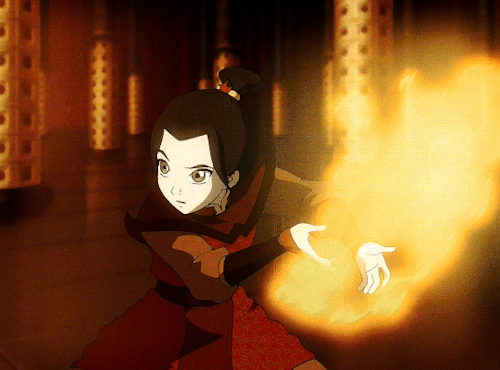
-------
None of this is even remotely similar to how Aang treated Tenzin and his kids, aside from the fact he supposedly “favoured” Tenzin more, but that is such a baseline statement and has absolutely no relation with Ozai's reasons.
You have to understand that an entire FUCKING NATION IS DEAD. History, Culture, Tradition, is at the BRINK of being wiped out, Tenzin is quite literally the only Airbender that will be left after Aangs passing. Why do people devalue this concept so much?
“B-BUT THE AIR ACOLYTES1!!” Still have limited knowledge, airbending is so heavily tied to its spiritual roots, you LOSE your ability to AIRBEND, if you aren't inclined to your spiritual side. Which is a core part of the air nomad culture. Tenzin is... Literally the only god forsaken part left of that, so yeah. It’s a pretty big fucking deal. Aang values his culture and teachings to such a high degree, he is literally the survivor of a genocide. His favouring of Tenzin was done out of necessity and love, not out of a need for power and a new attack dog to send orders around.
Tenzin will literally be the future “Director” Or guide for the next avatar to learn airbending, people still forget this, and it’s hilarious. He needs to know all the moves, all the teachings because he will be the next avatar's personal guide.
Aang constantly reassures him, and apologizes for the pressure that may be put upon him but he always reaffirms that he’ll be there to guide him and they’ll “learn together”
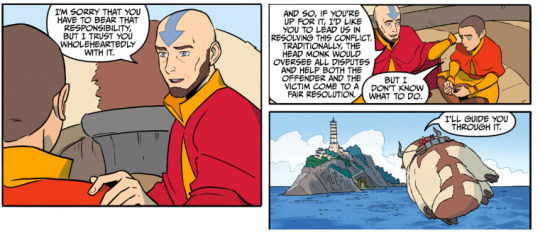
---------
So yeah not the same thing at all. Fuck you for being so inept at understanding the different reasons and perspectives of those situations, just for some petty ship discourse, genuinely disgusting.
Isolating the children:
OK this part, I have to say that the writers definitely messed up with aangs characterization, but I think the execution came out way differently than the intention, so I will try to look more into the intention of each decision.
Ozai isolated Zuko, mistreated him, belittled him, PHYSICALLY ABUSED HIM, but yeah totally on par with Aang actually.
I don’t wanna touch on this part much mainly because his treatment was literally explained all throughout the show, and granted, while I understand most of these people haven’t touched the show aside from reading fanfic 300000 Where Aang is revealed to us as satan himself, but perhaps, even a small peak at Ozai's parenting would reveal the laughable contrast between the two.
Zuko was a slow learner, and much more of a softie, and a “mama's boy” To Ozai’s heavy dislike, he was thus treated as such, he was belittled, turned down, and literally burnt alive for showing “weakness” He is meant to serve as a direct contrast to Azula, ”The everything he isn't.”
Kya and Bumi on the other hand, don’t show any actual signs of trauma aside from some petty jabs they threw at Tenzin,
Bumis talk with Aang at the statue was *very very* Clearly, meant to highlight his own inferiority complex that he internalized growing up. His need for proving himself to be capable of doing just as much if not more than a “bender” Probably happened because his two parents were both prodigy benders and him being a first born son who was a non-bender must’ve hit pretty hard for him, and I’m so sure that katara and Aang reassured how special he is but that kind of thing doesn’t really go away.
------
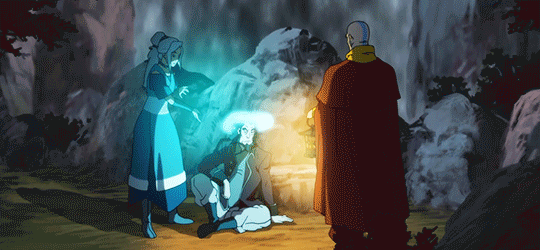
------
Kya:
[while healing Bumi] I told you those rocks were slippery. You're lucky you didn't kill yourself.
Bumi:
You done with the lecture, mom?
Kya:
Oh, grow up. You haven't changed one bit since we were kids. You're still trying to prove you can do everything a bender can. Well, you can't. Deal with it.
----------------------
That talk with Aangs statue was very much meant to unveil an internal struggle rather than a conflict he had with his father. Kya even doubles down on this, telling him “of course he’d be proud of you” Basically spoon feeding to us, the viewers, that this is much more of internal than an external conflict that he has to overcome along the show.
“Why Didn’t he share his culture with them 1!!1!”
He most definitely did, or tried to, but it’s clear they didn’t show much interest so he didn’t pester, this is shown many times throughout the show.
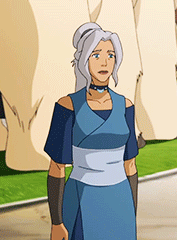
“You know I could never keep all those gurus straight… There were like a million of them!
remember that long boring story about the guy who never ate?”
This is literally Kya’s remark to Tenzin just after he tried teaching the airbender students this story, basically telling us that Aang DID try to tell them about his stories and culture, but much to their disinterest, didn’t try any further.
And Bumi, literally could not pay attention to the story to save his life, and instead decided to fool around in his literal 60’s!! I mean Imagine what he was like when he was a kid!!
I could imagine their dynamic was very similar to Jinora with Meelo and Ikki, Tenzin being the only one with actual interest and care, whilst Bumi and Kya goofing off and not putting much focus onto it. WHICH IS FINE BTW!!
It only goes to reiterate that Tenzin was the only one who was actually giving interest and attention to the air nomad culture, and it was of Kya and Bumi’s own personal choice to not partake in it. To each their own I see.
“BUT WHAT ABOUT THE VACATIONS”
This.. I agree, weird for the writers to decide this, but given how they low-key are retconning it in interviews, my best guess is that each of those trips were side-quests during their journey to teach an important lesson that might’ve just drowned out because Tenzin may not have remembered it as well.
Also keep in mind that Tenzin was put into a lot of pressure, Aang probably saw this, and as a way to still keep it enjoyable, he took him to trips that would help ease the mind for a little kid whilst also learning something valuable. That seems pretty on brand for Aang actually
And given that Kya and Bumi are literally in their fucking 60’s it wouldn’t surprised me if they didn’t have the greatest memory. Hell, they didn’t even fault Aang as a parent until Tenzin started boasting about “trips” That Kya and Bumi gave petty jabs but weren’t actually showing genuine hurt, just annoyance.
Kya even comments how Aang was too busy “Trying to save the world, and doing his duty that he didn't have much time for them”
Phrasing as if it wasn't anything "important" But it's clear that this was Kya's own personal irritation towards Tenzin rather than an actual evaluation on Aang's duties.
A continuation comic best explains it in a deeper way:

----------
Literally showing that “neglecting” His kids wasn't up to him, and was out of a sense of necessity, trying to cram as much knowledge onto Tenzin, the only one who was basically putting his lessons into practices. Kya and Bumi were left feeling neglected. But that wasn’t out of his decision; he still loved them dearly.
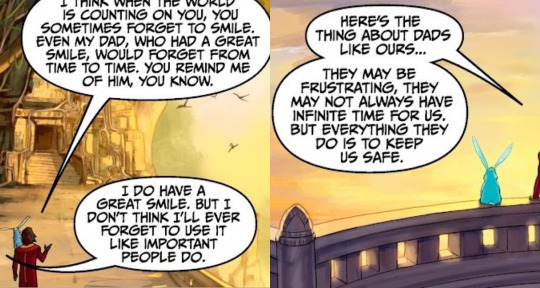
-------
This. Literally highlighting how much pressure was forced upon Aang, so yes, as any person would, he struggled with making time for everybody. Holy shit who knew??
GASP!! IS THAT… A REALISTIC BUT UNDERSTANDABLE FLAW!!?? HOW DARE YOU! ITS OZAI #2
The fact that the smiley energetic person forgets to SMILE, is a big deal, man was put through hells amount of stress but he never cracked.
So tell me, how is a genocidal freak, who treats his golden child like a tool and abuses the other both physically and emotionally for showing “weakness’
Even remotely comparable to
the sole survivor of a genocide, trying to withhold his teachings and culture onto literally his only child that showed actual effort in doing so, while also maintaining the balance of an entire fucking world and being literally the biggest “advisor” And “Mentor” For society, OH! And also building and managing a literal city, but along the way struggling to make time for his children.
Guess what, they’re not. And if you think they are. You are an idiot, with bias and headcanons.
So the conclusion is, Aang is a flawed parent, but he isn't a "bad" Parent - confirmed by the literal writers.
Comparing him to Ozai a literal dictator, is absolutely sickening, just for your petty shipping discourse when this show's been over for a decade is insane. Indulge in what you enjoy, but stop projecting delusions like they're canon.

:D
#atla#avatar the last airbender#aang#pro aang#aang defense squad#the legend of korra#tenzin#kya ii#bumi ii#how could you hate this cutie#anti anti aang#anti zutara#pro kataang#kataang#you all suck#anti zutara fandom#katara x aang#aang meta
172 notes
·
View notes
Text
we don't want izuku to be quirkless in the end blah blah blah, yeah i know. same.... but also, it could be cool.
imagine he still becomes a great hero, but quirkless? he's the first quirkless hero? and maybe that message is not one for mha to tackle, but hear me out:
what if his arc is him wanting so badly to have a quirk, getting one, learning that being a hero is inherent to himself and not attached to his quirk/abilities, giving his quirk up, AND still being a great hero? wouldn't that be awesome?!
i think that type of character trajectory is unique and interesting in and of itself. but i also know my personal experiences in life contribute to why i think it's cool. i became sick and chronically ill in my late-teens/early-twenties. i lost my health. over the past 5 years, i've regained a lot of it, but i'm not 100% better (and most likely will never be). i've had to go through the arduous process of accepting my physical limits through many iterations of functionality yet learning when i was actually being held back by mental limits/fears and how to push past those.
i relate to izuku's character on many levels: wanting so badly to have something i don't, trying so hard despite not having that thing, and getting that thing you wished so badly for seemingly out of the blue (for me, it was a medication that drastically improved my health). i also relate to his self-destructiveness in name of a goal and sense of (sometimes unwanted) martyrdom.
but i was always a little disappointed throughout the series in the fact that izuku's big problem at the beginning was just seemingly resolved by him getting his quirk from all might. does he view his quirkless self as worthy as his OFA self? we don't know. (do i view my sick self as worthy as my "healthy" self? i don't know.)
so, i just think, if izuku loses his quirk, there is more room for growth for him. in other words, he becomes more interesting. and i get it, this is a shonen manga, it's ending soon, and it's supposed to have an inspiring message (i assume). so maybe it ending with him being quirkless is not something that belongs in this category of manga/anime. but if any series can break the mold, isn't it mha?
#i also wanted to add something about how the legend of korra did a good job with disability rep when she lost her bending and had ptsd#but i didn't know where to put that#so here we are in the tags#anyway#and i just think izuku could be a metaphor for that with losing ofa#mha#my hero academia#bnha#boku no hero academia#izuku#izuku midoriya#deku#mha spoilers#mha manga spoilers#bnha spoilers#bnha manga spoilers#quirkless izuku#quirkless deku#midoriya izuku#mha meta#bnha meta
120 notes
·
View notes
Text

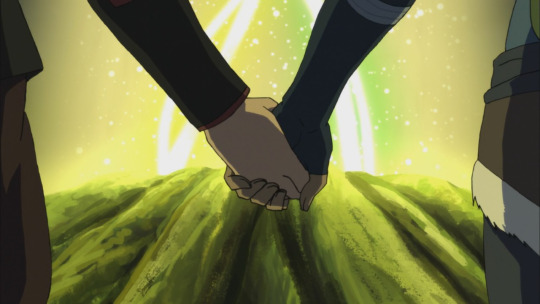
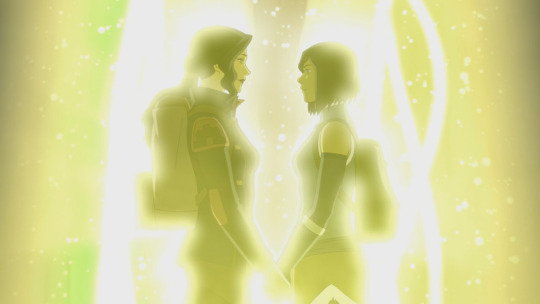
9 years ago today, I watched the LoK finale on my little Google Chromebook alone in my bedroom. I was 17 and had just finished my first semester of my senior year of high school.
I had known I was not straight since I was 8-9 years old, but was ashamed of it - the Bible Belt is not a friendly environment for anyone who doesn’t fit into the cishet mold. I’d resolved to never reveal that part of myself to anyone.
I wouldn’t say that I was an open, active Korrasami shipper before this point (due to internalized homophobia). However, one of my guilty pleasures was reading Korrasami fanfiction, and I had keenly noticed the change in the way they behaved around one another starting in S3 - the way they grew closer and more comfortable around each other, bonding over their failed romances with Mako, the way they looked out for one each other, Asami taking Korra’s hand and comforting her after she helps her get ready for Jinora’s ceremony, Korra only writing to Asami during the three years she was gone…
But there was no way in a million years that they would ever actually make them canon. Right?
When Korra and Asami walked into the spirit portal, I was shocked, but also immediately in denial. I told myself, “Nope, they’re just friends :)”
But deep down, I knew that their ending was romantic. Friends don’t look at each other like that! And they even played a tiny bit of “The Avatar’s Love” at the very end! I’m an AtLA superfan! I noticed that!
Then, Bryan Konietzko made a tumblr post clarifying that yes, Korrasami was canon whether we liked it or not. And once again, I was dumbfounded. A franchise that I had loved so much since childhood had just done something groundbreaking. For the first time ever, I saw people like me portrayed in media I loved. And when I read Bryan’s words about how important queer representation like this is, it clicked for me.
From that point forward, I started to acknowledge my queer identity. I went to college, became a vocal ally, and eventually started coming out to family and friends. Today, I’m not only out in my personal life, but also my professional life.
I’m so, so proud of my identity. And it’s all thanks to what Bryke and the LoK team fought to give us nearly a decade ago.
Happy 9 year anniversary, Korrasami. 💙❤️
#I really wanna get a korrasami tattoo at some point because that’s how much they mean to me#korrasami#lok#lok finale#lok meta#representation matters#legend of korra#korra x asami#asami x korra#atla#avatar the last airbender
115 notes
·
View notes
Text
as much as i’d love to believe that all of tenzin’s need to rebuild the air nation is self inflicted, i don’t see a universe where aang wouldn’t have, possibly subconsciously, created or fed into that need.
rebuilding the air nation was the most important thing to aang, that was clear to everyone who knew him, especially his son, the only person who could actually help aang realise that dream. while it might never have been said explicitly, tenzin knew from a young age the only way he could have anyone like him other than his father in this world was to have children.
i do not think, in any way, aang (or katara) would have ever told tenzin he had to have children. but, i do think it was in some ways expected from him since he was young.
after tenzin and lin had been together for a while, assuming lin’s aversion to motherhood was known already, i do think aang would have changed his expectations and come to peace with tenzin being potentially the last ever airbender, but that process would have come with a lot of grief. tenzin would have already been two decades deep in the loneliness of being an airbender, and aware his father won’t live forever, and so would likely have always wanted children of his own throughout his relationship with lin.
on a related note, demonising pema for her relationship with tenzin is completely and utterly ridiculous. tenzin was probably telling the truth when he said he and lin’s relationship was spiralling downhill. of course he would find companionship and friendship with an acolyte engrossed in his culture (that he is now the last member of), and find himself drifting from someone he cares deeply for but is not after the same things in life as him. when pema talks to korra about her relationship with tenzin starting, of course she’s not going to bring up lin’s obsession with career, or aangs passing and the grief associated, or tenzin’s unending loneliness in the world, just that she saw tenzin’s relationship was going to end horribly no matter what and she cared about him. (EVERYONE WHO SPENT ANY TIME AROUND LIN AND TENZIN PROBABLY KNEW THEIR TIME WAS UP. THEY ARE BOTH EMOTIONAL PEOPLE. A STRAGGLING RELATIONSHIP AND MUTUAL UNHAPPINESS IS NOT IMPOSSIBLE TO SPOT).
anyways. it does not make aang a bad parent for hoping tenzin will bring more airbenders into the world. it does not make pema a homewrecker for dating a man after a messy (& very public) breakup.
thank you for coming to my ted talk.
ps. read inheriting the wind by acommondator on ao3 it is beautiful!!!!
#is this comprehensable?? idk#pema defender for life#lin defender for life#tenzin defender for life#i love tjem all!!!!!#tenzin#tenzin tlok#lin beifong#aang#avatar aang#katara#the legend of korra#tlok#avatar the last airbender#tlok meta#atla meta
39 notes
·
View notes
Text
Okay since this has suddenly blown up over the last 3 days, I want to make a post discussing what I meant by it. Because I have shit to say.
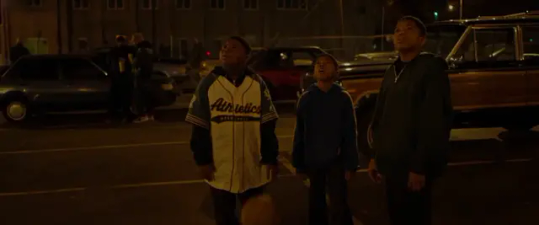
Fiction doesn’t affect reality, but fiction can affect people. For better or for worse.
You might read a book and some random line might inspire you enough to want to live by it.

You might play a video game and come away questioning about something you’ve never really thought about before.

(also, just to get this out of the way)

And in regards to the original post— yes, there have been cases in which groups advocating for change have been taken advantage of by bad people. To ignore that would be to ignore history.
But the thing is, that is a real life example. Real people, places, organizations and concepts are and will always be impossible to convey in fictional media because those things are always changing. They are never just black and white, never.
Meanwhile, fiction is different. Whether it’s a book, game, movie, tv show— even the most complex of media will never truly be as “complex” as reality.
Because fiction is written. Scripted, animated. Filmed. Programmed, sculpted, published.
Reality isn’t any of those things. What a person feels, does, says, thinks, isn’t written down, isn’t predestined by some script or line of code— the closest way I can describe it is that it’s dictated by 1,000 hands doing a coin flip at the same time with a 3-sided penny that immediately falls into a hole before a winner can be discerned.
Anyways. I’m off topic.
What I’m trying to get at is that no fictional character has the agency that a real person has. We cannot interview a fictional character and get an idea of how their thought process works, or hell what they had for breakfast or something. No.
Because the extent to which a fictional character, setting, etc. exists— is between the time the opening title fades out and the credits fade in. The time between you clicking new game & when you’ve reached the true ending. When you open page 1 and end page 200.
But like I said. Fiction can have an effect on real people’s minds, for better… or for worse.
You are a viewer who might not know any better. You might not be well informed on history, and may easily have your mind shaped by whatever you consume.
You turn on a show, plug into a game, open a book, grab your popcorn and watch a movie. And in this media, there’s a character, or maybe multiple characters— and their cause is laid out, plain and simple.
Maybe they’re apart of some oppressed group, fictional or nonfictional, who wants change in society. Who wants their oppressors to just stop oppressing them, and has been pushed to the extent in which the only way their voices can be heard is through violence.
Most likely they are already “antagonists” of the narrative, but that their goals are treated as being… “understandable”… by either that narrative, or the main cast.
At least, to the extent that these protagonists can still gleefully beat the shit out of them without anyone batting an eye.
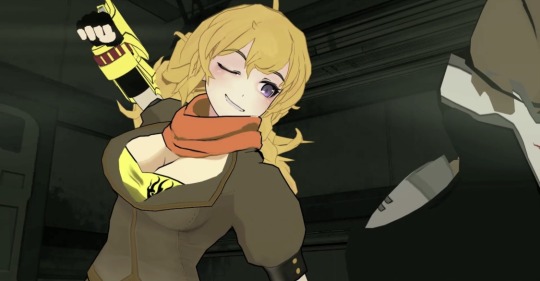
And you continue watching, playing, reading, etc. And most likely at this point, the narrative has begun to portray these particular antagonists in a different light.
Perhaps they’ve begun upholding the goals they said they had less and less. They’re becoming more violent just for the sake of it.

And also at this point it is likely that the narrative is… silently… treating this character’s/group’s initial goals with less and less favorability. Key word, silently.
“Oh, this character is fighting back against oppressors… but now they’re killing people? How evil, surely pushback against oppressive groups can never be achieved.”
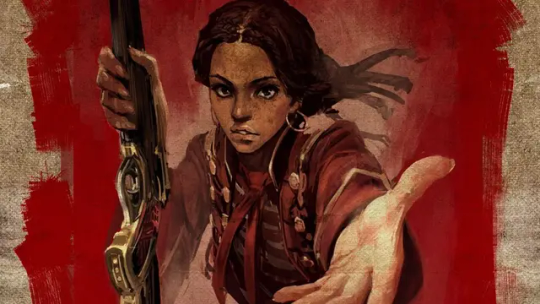
“Oh, this fictional group/organization wants to fix their society? Their society which has displaced them without care? …Oh, but they’re bombing buildings now, surely we could never take their displacement seriously.”
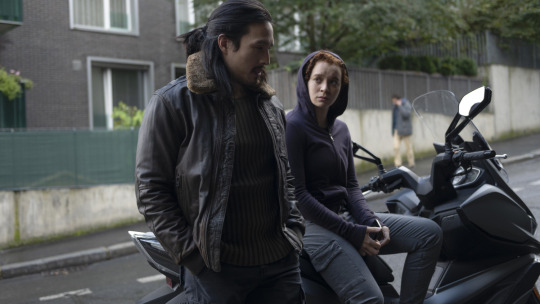
And eventually as you near the end of this narrative, the slippery slope has been slipped upon.
In an instant, the character(s) whose goals were at least given a shred of sympathy at the beginning of this story
suddenly end up killing thousands of people.
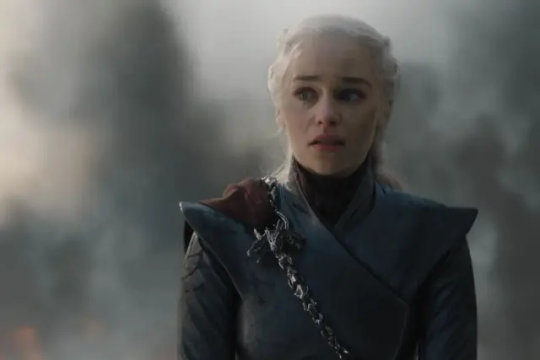
Or maybe, they suddenly turn out to be apart of the very group they’re trying to combat against.
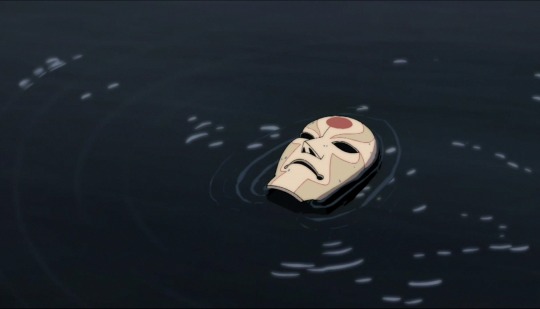
Or maybe, they’re a Holocaust survivor.
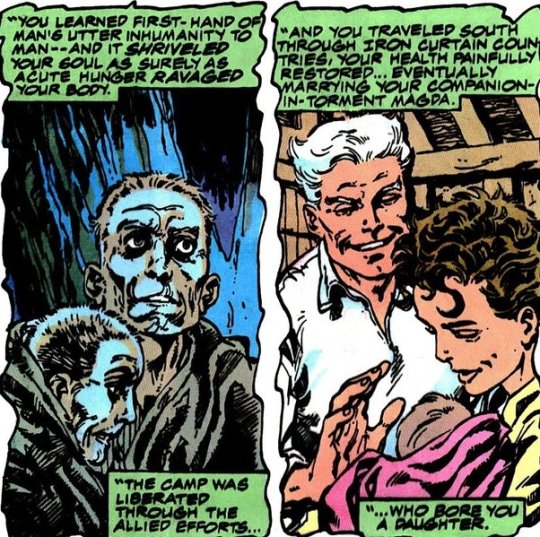
Another thing you might see the narrative start to do at this point is suddenly reveal the backstory of this character/organization— and most likely, it’s something sad, upsetting, angering.
But it rings hollow, it’s meant to ring hollow. Because when you give a character(s) you’ve already assigned the hatesink role to, that backstory will be disregarded in the instant if never explored upon. And in most instances… it’s not explored upon. It’s shock value.
And while this might not be the case for the character above, as my knowledge of X-Men is fairly limited… I can say that this is the case for another character:
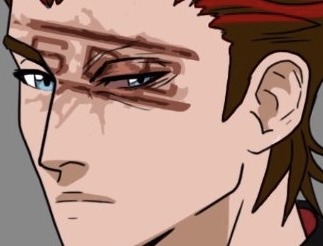
This character was branded.
This character who, in universe, is apart of a fictitious minority group, is revealed to have been branded and enslaved by a company run by his oppressors, with outside material implying this was possibly done while he was a minor.
Good thing this was revealed after he turned out to be a genocidal terrorist & abuser! Who cares that he was branded? I bet whoever did it just really “let him have it.” (Writer’s own words!)
Please don’t look up the fact that Adam is a Hebrew name! Please also don’t realize that the initials he was branded with & the company he was enslaved by had a German name!
And most likely at this point, the character(s) have two routes to go down.
They die graphically. Maybe not in a big bloody gorebath, but they’re not given the same amount of liberty in death that other villains in this media might get. Bonus points if it’s on-screen. However, you’ll have the main character “mourning the loss” of them, or rather, what they could’ve been, if only they’d not gone so far!


2. Or just take what I said in 1 but without the last sentence.

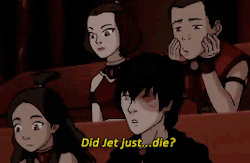
And then, credits roll. You’ve reached the true ending. Page 200. Final episode. Whatever.
And if you’re the viewer I mentioned at the beginning of all of this, who might not know any better—
who takes what they see in fiction and applies it to the world around them…
You’ll think. “Are people/groups like that in the real world this dangerous, too?”
(especially if it’s used in media meant for children.)
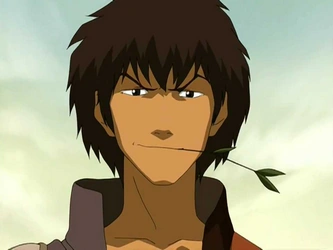
But anyways.
It’s propaganda dipped in flashing lights or likable characters. It’s propaganda that’s hidden under cool set pieces, beautiful cinematography, “good writing.”
I wanna reiterate what I said earlier in this post.
“What I’m trying to get at is that no fictional character has the agency that a real person has. We cannot interview a fictional character and get an idea of how their thought process works, or hell what they had for breakfast or something. No. Because the extent to which a fictional character, setting, etc. exists— is between the time the opening title fades out and the credits fade in. The time between you clicking new game & when you’ve reached the true ending. When you open page 1 and end page 200.”
When a character advocating for justice or freedom or something noble and good, suddenly ends up murdering babies or bombing hospitals, they loose the “advocating for justice or freedom” part. They’ve shifted from one part of their written arc to the next.
We only see what the narrative allows us to. So when the narrative only allows us to see these character(s) do horrific things, we subconsciously interpret that these things were their main goals all along.
And most often, this kind of narrative will prove you right on that front. Sadly.
And again. If you’re “that viewer”— you’ll apply that logic to the world around you. You’ll grow into that logic.
You’ll see news reporters regard people protesting a genocide as “needing to be put in insane asylums” and nod your head. You’ll see podcasters tout a group fighting against police brutality and racism as terrorists and agree with them.
Maybe I’m being exaggerative. It’s 12 am here. But what I’m really trying to emphasize here is that this trope is propaganda.
Yes, there are real world examples of bad people taking over good organizations. But when you present a scenario like that in fiction, you subtract the nuances and complexities that real life has.
And it becomes propaganda. Propaganda that no one is immune to, and anyone can be susceptible to.
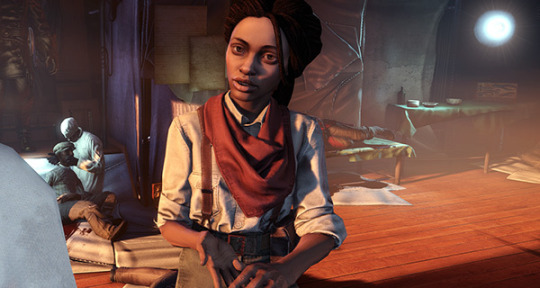
It’s propaganda when Bioshock’s Daisy Fitzroy, a black revolutionary & former slave who wanted freedom for her people, has her goals invalidated time & time again and is portrayed as just as evil as the system itself.

It’s propaganda when The Legend of Korra’s Zaheer, who wanted to destroy the authority figures of the world so that all people could be free, ends up torturing the main protagonist on screen.
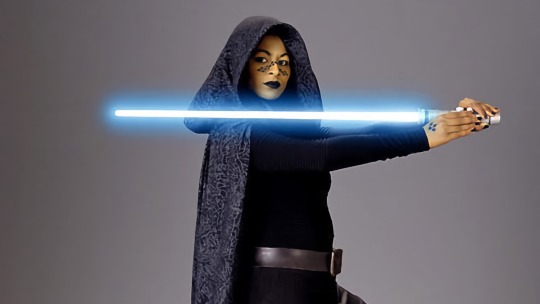
It’s propaganda when Star Wars’ Barriss Offee, who wanted the Jedi to return to being peacekeepers, not warmongers, and then bombing their temple. (Didn’t help that she’s heavily Muslim coded.)
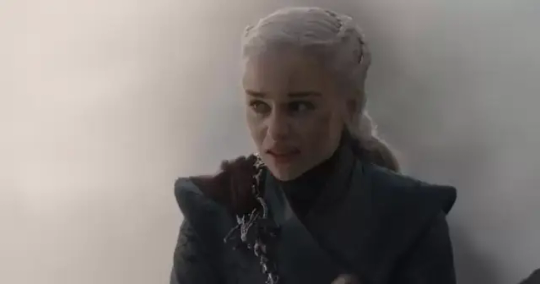
It’s propaganda when Game of Throne’s Daenerys Targaryen goes from being a victim of abuse who wanted to liberate the oppressed and destroy their oppressors, to becoming a murderer of thousands because “she was mean to some slavers.”

It’s propaganda when RWBY’s White Fang, a group made up of members of an in-universe minority race, are never once given a shred of sympathy, becoming nothing more than evil terrorists wanting to take over the world, and are even blamed as “the cause of their own racism.”
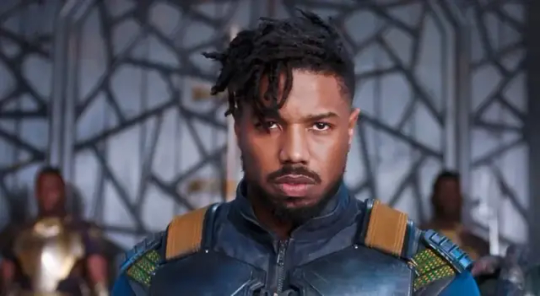
It’s propaganda when Marvel’s Erik Killmonger wants to continue what his father wanted and empower black people around the world to fight against their oppression, “overthrow their oppressors”, but then just… actually wants to conquer the entire world.

And it’s propaganda when Magneto, a Jewish man, a survivor of the holocaust… is written to be an advocate for genocide.
TL;DR:
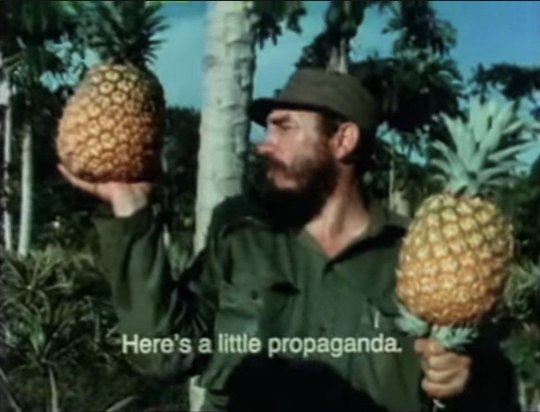

#tumblr#let them fight#no one fight#marvel#erik killmonger#x-men#magneto#social justice#fiction#literary analysis#literary criticism#meta#analysis#rwby#bioshock#star wars#avatar#avatar the legend of korra#the legend of korra#the last airbender#game of thrones#long post#image heavy#will likely improve upon the image id’s later#dragon age#snd if I worded any of this wrong please lmk.
32 notes
·
View notes
Text
At some point I’d like to make a longer post about this, but it’s really cool to see the ways Mako’s and Bolin’s bending mirrors each others. Both of them are mostly self-taught and have a lot of non-traditional moves and styles. And it makes sense that they would learn or practice things together or that one would imitate the other. Anyways I saw these two gifs side by side and it made me want to make a longer post about this at some point in the future. For now though, look at how similar their bending is even though they have two completely different elements!

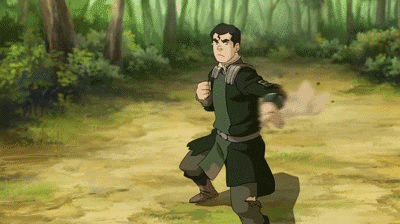
#Mako#bolin#mako lok#bolin lok#atlok#tlok#avatar#legend Of korra#Lok#bending meta#lol meta#Sort of lol
287 notes
·
View notes
Text
I know most of you aren't here for my Legend of Korra villain feelings in 2024, but ... lol oh well. I took a break from my dissertation yesterday to write six pages of meta about LOK's main villains and why I think LOK is better for them despite its flaws and frequently uneven execution.
This had always been a show that, for all the centrist trappings, was willing to transform its own setting. It might tapdance around this in awkward ways, like with the offscreen transition to an elected non-bender president, there might be unpleasant side effects like the spirit vines in Republic City, the more drastic changes might be unpredictable or frightening for the characters, and people don’t always know what the political changes they advocate will lead to, as with Zaheer inadvertently setting up the conditions for Kuvira's rise. But I think the overall arc of the show is one of broad and sometimes drastic social change towards a better world.
#avatar: the legend of korra#anghraine babbles#anghraine's meta#lok fanwank#villain blogging#noatak#tarrlok#unalaq#zaheer#kuvira#wu#korra#dreamwidth crosspost
31 notes
·
View notes
Note
What do you think of Toph becoming a cop in LoK?
I'm not sure if I have too many thoughts about it.
The thing about LoK is that there's such a large gap between when we see the characters of the original show to when we see some of them as adults (Aang of course being dead). There's so much that happened to them in the meantime that I guess for me it's a moment of "Alright, Toph becomes a cop I guess."
I do think she would seek a career or employment of some type and would rail against being a diplomat (far too similar to her homelife in the decorum and manners and political weasling required). She'd like being a cop in this brand new city where there's none of the old things tying her down, she can train her own group of benders, and she's doing good in her own straight forward way.
I think it makes sense in that the others all have roles of some kind. Suki is a Kyoshi Warrior, Sokka and Katara are children of the southern tribe Chieftan and have relations to repair with the Fire Nation as well as the North Pole, Aang is of course the Avatar himself, Zuko is now Fire Lord, Toph is the only one who doesn't have a set position and has to find something for herself to do in the quickly changing new world order. This keeps her connected with her friends in their new city they're working on building up and is a role she'd like to fulfil.
#avatar the last airbender#avatar the last airbender meta#avatar the last airbender headcanon#the legend of korra#toph beifong#meta#headcanon#opinion
92 notes
·
View notes
Text
I'm ultimately a Cop Toph defender because if you look at it she loved playing frontier Sheriff (beating up the bad guys with her pals) but as Republic City became bigger it became less and less that. Organized crime, paperwork, dealing with problems of the big city instead of bandits. She then became disillusioned and fucked off of to a swamp.
Absolutely in character for her. It went from frontier justice to a bunch of law and rules and shit so she left.
#toph beifong#toph#republic city#legend of korra#avatar#the last airbender#avatar the last airbender#meta#characters#avatar the legend of korra#this criticism is giving “i only watched season 1 of korra and read about the rest online”
19 notes
·
View notes
Text
I was going over the subject of Kuvira’s childhood with @redcatmusings , and this scene came to mind:

and it made me realize that Bruce’s line also applies to Kuvira. After all, this is a child who was reeling from several traumatic events that, as we know, led to the abandonment complex that influenced many decisions in her life. This is not to say that because of her tragic upbringing, her decisions later in life are justified; rather, it provides us with context regarding her mental and emotional state. The burden of unresolved issues from childhood can shape a person, and if not properly addressed, it can continue to affect them throughout adulthood.
IMHO, in Kuvira’s case, as she went through the struggles of adapting to a new household, she learned to become quite adept at masking her anger to gain her new family’s acceptance and affection. At some point, she must’ve realized that her unruly behavior had already cost her biological family. This is a little girl who was already made responsible, not only for breaking up her family but for almost killing her mother and she carried the guilt and shame of those actions. Anger became a reflex, a defense mechanism for a child unable to properly understand or manage her emotions. This anger had an unfortunate effect, and it’s because it isolated her from the other kids, like we saw with Opal in ROTE. We can’t know for sure for how long this went on, but we also know that the Kuvira we meet in Book Three successfully overcame this because we were introduced to a capable, courageous, and obedient young woman who had proven herself to be dependable and trustworthy enough to be given the reins of the Zaofu Guard.
So how and why did the almost feral little girl with trust and anger issues transform into Suyin’s trusted protege? I believe there are several reasons. One of the main motivators and driving forces behind this change was the existential fear of being abandoned. As an orphan myself (and this might be more than a bit of projection, lol) feeling abandoned is quite scary, and in Kuvira's case, the reason for her abandonment made it more hurtful and terrifying. If it happened once, it could very well happen again a second time, and in her eyes, the fault would be hers and hers alone. That's pretty heavy stuff for a kid to contemplate 😭. The other motivator was praise and positive reinforcement. Her biological parents had emphasized discipline, but through Suyin, Kuvira finally learned she could earn the praise of the adults when she behaved as they expected from her, and she realized it felt very good. She could be more than a disappointment, more than a burden that could easily be discarded. She could be deserving of praise, affection, and acceptance after all, and this made her feel safe. If she behaved, she wouldn't be given away again. So she sought Suyin’s acceptance by emulating her mentor and striving to become the best at everything she did (as we can see illustrated in these parallels). But with time, she realized that even that wasn’t enough to become one of them, a Beifong. Despite her best efforts, she remained an outsider within the family, and the frustration and anger this elicited finally came to a head when in open defiance, she broke away from the family and from Zaofu to seek a noble purpose in aiding the fractured Earth Kingdom in its moment of crisis. The mask came off, and it revealed that the anger had never truly gone away.
NOTE:
Since for some reason the hyperlink formatting won't stick, the links to the parallels referred are these:
https://www.tumblr.com/cabronallorona/112798537765/you-thought-you-were-there-to-guide-me-you-were
https://www.tumblr.com/elemelon-s/111927744706/she-was-like-a-daughter-to-me-kuvira-suyin?source=share
#the legend of korra#legend of korra#tlok#lok#kuvira#zaofu#suyin beifong#childhood#headcanons#meta#ruins of the empire#rote
30 notes
·
View notes